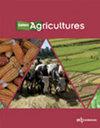Food habits and beliefs about Moringa oleifera among South African student mothers: a qualitative study
IF 1.1
4区 农林科学
Q3 AGRICULTURE, MULTIDISCIPLINARY
引用次数: 0
Abstract
The problems of malnutrition constitute a major challenge in South Africa, particularly affecting the underprivileged populations of the Eastern Cape and Limpopo provinces. The present study aimed to gain an understanding of how to improve the nutritional intake of South African university student mothers and their children by the introduction of Moringa oleifera in their food. Focus Group Discussion was implemented at two previously historically disadvantaged universities with predominantly black student populations, namely the University of Fort Hare and the University of Limpopo. Findings from the participants’ discussion about food habits and barriers to healthy eating show that there is a gap between healthy eating knowledge and eating habits. Despite the high level of awareness of the importance of nutritional intake, most of the study participants and their children consume less healthy foods. Due to the high cost of healthy food and their limited income, student mothers face substantial financial constraints when trying to make healthy changes in their food habits. Moreover, student mothers’ positive beliefs about the nutritional benefits of Moringa are insufficient to encourage its consumption. Finally, student mothers agree about using Moringa as a nutritional supplement. Maize porridge (pap) appears to be the preferred staple food for Moringa supplementation because of its palatability, satiating power, availability, affordability, and ease of preparation.南非学生母亲的饮食习惯和对辣木的信仰:一项定性研究
营养不良问题是南非面临的一项重大挑战,尤其影响到东开普省和林波波省的贫困人口。本研究旨在了解如何通过在食物中加入辣木来改善南非大学生母亲及其子女的营养摄入量。焦点小组讨论在两所历史上以黑人学生为主的弱势大学实施,即黑尔堡大学和林波波大学。从参与者关于饮食习惯和健康饮食障碍的讨论中发现,健康饮食知识和饮食习惯之间存在差距。尽管对营养摄入的重要性有很高的认识,但大多数研究参与者及其子女食用的健康食品较少。由于健康食品的高成本和她们有限的收入,学生妈妈们在试图改变她们的饮食习惯时面临着巨大的经济限制。此外,学生妈妈对辣木营养价值的积极信念不足以鼓励其消费。最后,学生妈妈们同意使用辣木作为营养补充剂。玉米粥(pap)似乎是辣木补充剂的首选主食,因为它的适口性、饱腹力、可获得性、可负担性和易于制备。
本文章由计算机程序翻译,如有差异,请以英文原文为准。
求助全文
约1分钟内获得全文
求助全文
来源期刊

Cahiers Agricultures
农林科学-农业综合
CiteScore
2.00
自引率
22.20%
发文量
23
审稿时长
3 months
期刊介绍:
Cahiers Agricultures is a - mainly - French language scientific journal on world farming systems, how they are changing and their role in society. It is aimed at all those – researchers, field workers, teachers – who are interested in a holistic reflection on the agricultural world.
Cahiers Agricultures gives priority to research on agriculture as implemented by farmers, that has meaning for citizens in countries in the North and South, as opposed to research work conducted in a controlled environment (laboratory, research center, etc.). Research of this type is often multidisciplinary and takes into account the knowledge and know-how of the different stakeholders. The different parties are also actively involved in research, alongside the scientists. In this way, the journal stimulates debate on issues linked to society, such as the impact of using water and nitrogen fertilisers, peri-urban farming, fish farming, livestock production in rural areas, food security, etc.
 求助内容:
求助内容: 应助结果提醒方式:
应助结果提醒方式:


